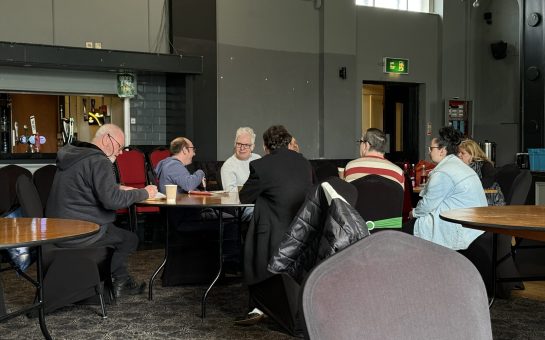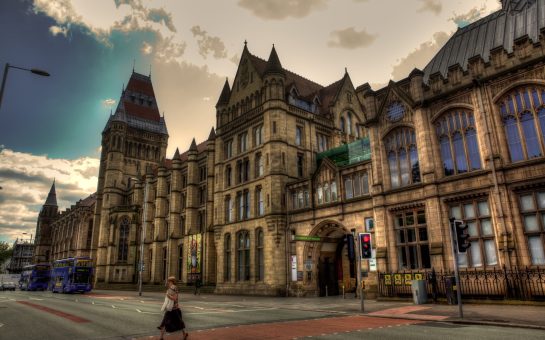Tony Lloyd’s commitment to addressing air pollution could extend life expectancy in Mancunians, according to a University of Manchester academic.
Air pollution is currently of top concern for Greater Manchester’s interim mayor, and he launched a public consultation for an action plan on Friday.
This came in response to a new report from the Royal College of Physicians and the Royal College of Paediatrics and Child Health published last week which said that outdoor air pollution is linked to the deaths of at least 40,000 people across the UK annually.
Hugh Coe, a professor at the School of Earth, Atmospheric and Environmental sciences at the University of Manchester told MM that he is pleased Mr Lloyd is taking up the cause.
“It’s great that the mayor’s office and Transport for Greater Manchester are recognising the magnitude of these issues and seeing what they can do to help address them,” he said.
“There is a significant reduction in life expectancy as a result of air pollution.
“The worst affected people will be dependent on location – if you’re living or working by an extremely busy traffic route then you are going to be exposed to high levels of air pollution.
“It’s certainly been linked to reductions in lung function, it does affect older people at times and asthma sufferers.
“Because pollution can pass through the lung lining into the blood stream, it has also been linked to poor heart performance and bringing on strokes.
“There have been other links to child development but those areas are far less clear cut.”
Lloyd, also Police and Crime Commissioner, expressed his concern with the findings earlier on Friday, insisting that ‘we must take action to stop these deaths – doing nothing is not an option’.
The eight-week consultation on the Greater Manchester Low Emission Strategy and Air Quality Action Plan provides the public with the opportunity to have their say.
Residents will have the chance to comment on a wide range of proposals aimed at improving air quality and reducing carbon emissions from transport throughout Greater Manchester.
There are set of EU guidelines that the UK has to meet for oxides and nitrogen which it currently isn’t meeting in a number of areas.
“Manchester is not alone,” said Professor Coe.
“The UK has a high population density and in urban areas there is an enormous amount of traffic and therefore a significant amount of both nitrogen dioxide and particular matter emitted, with a lot of people living close by, making the exposure levels significant.
“The Greater Manchester consultation is really about trying to put in place a set of measures that can make sure that the city continues to grow, stays strong economically and maintains a good quality of life for residents but improve the overall air quality.
The expert said that, although there is no one solution for the issue, there is one clear way in which residents can help to reduce emissions – drive less.
“To get the public of Manchester to [drive less] is going to require other options to be put in place that people actually want to choose,” he said.
“Improved cycleways, bus services, better information about transport, more available charging points for electric vehicles or even an intervention like London’s congestion charge to create a clear air zone.
“The people in the city have got to buy into this.
“It’s very high on the national and local agenda and since the responsibility has been devolved to the regions Manchester has been pro-active.
“It’s good to see that Manchester is on the front foot on this issue.”
The consultation is being carried out by Transport for Greater Manchester on behalf of the Greater Manchester Combined Authority.
To read or download the strategy and plan and to give feedback on the plans through an online questionnaire, click here.
Image courtesy of Policy Exchange and Owen Byrne, both via Flickr, with thanks



